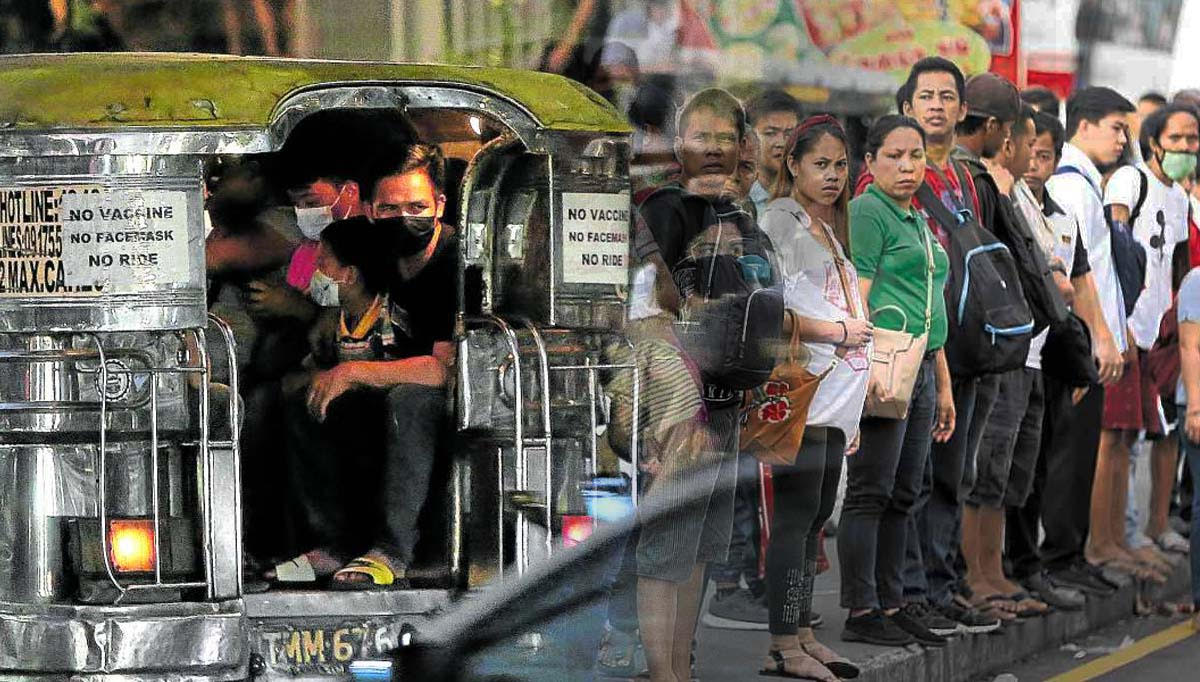MANILA, Philippines – Public transportation and urban mobility readiness in the Philippine capital are among the worst in the world, according to a report by think tank Oliver Wyman Forum and the University of California, Berkeley.
Among the 60 global cities examined in the 2022 Urban Mobility Readiness Index, Manila ranked 58th in urban mobility readiness, 56th in public transit systems, and 48th in sustainable mobility.
The cities were evaluated based on their readiness for future mobility disruptors, taking into consideration how public transport systems are being managed and used, and what efforts are being exerted to build more sustainable mobility ecosystems.
The think tank took cognizance of the several modes of transportation available for commuters in Manila, including jeepneys and metro lines.
The report further noted that active mobility in the streets of Manila is boosted through “permissive transit rules on bikes, as well as significant cycling infrastructure.”
“Despite these multimodal strengths, Manila’s public transit system has room for improvement in speed, wait times, station density, and affordability,” it pointed out.
READ: As PH transport crisis worsens, workers say traffic, lack of rides are draining them
Also highlighted in the report were the challenges faced by road transport in Manila, particularly the “poor quality of roads in the metropolitan area and the limited regional connectivity provided by the national road network.”
“Manila is congested and polluted, but a low level of car ownership should help prevent these problems from worsening,” it said.
Manila, the only “lagging city” in the Asia Pacific region in terms of public transit systems, only bested Johannesburg, Riyadh, Nairobi, and Jeddah.
Meanwhile, its regional neighbors were deemed “leading cities” with Hong Kong ranking first, Singapore placing fourth, and Tokyo at seventh.
“The potential domino effect of a desolate public transit system is staggering: economic fallout from poor revenue and lost jobs to operate it, increased congestion associated with more private travel, likely more road fatalities, and worse noise, light, and air pollution,” the report said.
READ: Suffering commuters, higher fare, fewer trips: PH transport woes pile up
Manila fared better in the sustainable mobility category, which measures how well cities are making the transition to net-zero mobility.
At the 48th spot, Manila was neither lagging nor leading in its pursuit of a greener and a more sustainable mobility ecosystem.
But the city sank third to the last in the ranking of the cities’ mobility readiness, only ahead of Nairobi and Lagos.
“Cities that tackle future mobility challenges, particularly as it relates to public transit, will be better prepared for future disruptions with resilient and sustainable economies,” the report argued.
The report estimated that for every $1 billion invested in public transport, 50,000 jobs could be created – yielding $5 in returns for every $1 invested.
“But inflation, social unrest, climate change, and other disruptions all pose a risk that urban mobility will fall off the priority list for governments. An increased commitment from the private sector is crucial to supplement the cost of new solutions and equitably raise the quality of life among all communities,” the report pointed out.
READ: PH transport crisis: Complex problem requiring comprehensive solutions


